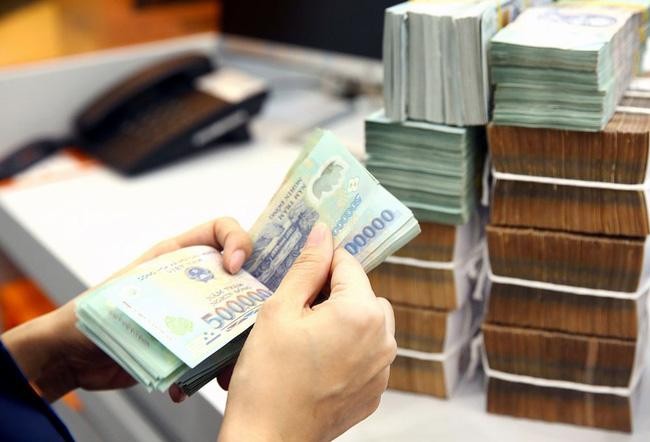As of December 18, 2024, budget revenue from domestic production and business activities exceeded the estimate by 16.5%, up 13.7% compared to 2023.
According to Ms. Le Thi Duyen Hai, Director of the Department of Tax Declaration and Accounting (General Department of Taxation), this result was achieved thanks to the analysis of tax statistical database to identify revenue sources, regions, and taxes with room to grow, preventing loss of state budget revenue.
 |
| Ms. Le Thi Duyen Hai, Director of Tax Declaration and Accounting Department (General Department of Taxation) |
How do you evaluate the domestic revenue situation this year?
There are few years in which the tax sector has basically completed its collection task in 11 months. In 2024, the tax sector was assigned to collect VND 1,486,413 billion, but by the end of December 18, it had reached VND 1,732,000 billion, exceeding VND 245,587 billion, an increase of 13.7% compared to 2023.
This result is partly due to the recovery and strong growth of production and business activities, with an estimated GDP growth rate of 7% - quite high compared to the target of 6 - 6.5%. In addition, it is thanks to the tax, fee and charge support policies of the National Assembly and the Government, creating conditions for people and businesses to recover and promote investment in production and business. Up to this point, the tax sector has provided support of VND 178,200 billion, of which the amount of tax and land rent has been extended by VND 98,300 billion; the amount of tax and land rent exempted and reduced is VND 79,900 billion.
In addition, the results achieved are also thanks to the fact that over the past years, the tax sector has gradually built and accumulated a huge source of data, which is an important basis for implementing new tax management models, digital transformation, automating business processes towards a system of decision-making and assigning work to tax officers, controlling work and monitoring results.
According to you, is the above budget collection result achieved thanks to the application of information technology?
During the management process, the tax sector has built and accumulated a large and valuable data source, fully reflecting the operational, business, financial status, and tax obligation performance of all enterprises, organizations, and individuals from the beginning to the end of operations. From July 1, 2022 to present, the electronic invoice database has reflected almost all sales transactions of the economy at the time of occurrence.
Identifying that big data information is especially important in tax management, the tax sector has implemented a project to modernize tax statistics, gradually using databases in tax statistics, analysis, and forecasting to serve policy making as well as administration, management, and prevention of state budget losses.
Exploiting and analyzing tax statistical data to identify and delimit revenue sources, regions, and tax rates still has room to deploy many topics to improve management efficiency and effectively prevent state budget losses.
Can you say more about applying big data to combat tax evasion?
Applying big data to inspection and examination work, this year, the tax sector has proposed to handle 62,726 billion VND in finance, including increasing revenue by 16,463 billion VND; reducing deductions by 2,675 billion VND; reducing losses by 43,587 billion VND; increasing revenue by 2.47 billion VND/inspection on average and nearly 202 million VND/inspection. This year, the state budget collected 61,227 billion VND in tax arrears, an increase of more than 33% compared to 2023; issued nearly 58,700 notices of temporary suspension of exit with a total tax arrears of 80,512 billion VND, thereby collecting 4,289 billion VND from 6,650 taxpayers.
Particularly for the topic of preventing revenue loss in the field of imported agricultural products, based on the import data provided by the General Department of Customs and comparing with tax declarations and electronic invoices of taxpayers, more than 1,500 taxpayers operating at risk of declaring revenue from goods and services sold lower than the value of imported agricultural products in the period of 2020-2024 have been identified and isolated, thereby reviewing and including in the inspection and examination plan in 2024 and 2025 for nearly 700 taxpayers. The implementation results so far have handled 317 taxpayers, the amount to be paid additionally is 190 billion VND; reducing value added tax deduction by 15 billion VND, reducing losses by 125 billion VND.
Besides preventing revenue loss from agricultural imports, what other areas are in the "sights" of the tax authorities, madam?
The area that is thought to have little revenue loss, but in fact is losing a lot of revenue is higher education institutions. We have been focusing on preventing revenue loss for higher education institutions. Through exploiting and analyzing data on tax declarations and financial reports of universities, we have identified 128 units with large discrepancies between financial statements and tax declarations in the period 2021-2023. As a result, up to now, 50 universities have been forced to make additional declarations with an additional revenue of VND 8,358 billion, an increase of 13.8% compared to the declared amount; the total corporate income tax payable through additional declarations increased by VND 292 billion, an increase of 14% compared to the declared amount.
Hanoi alone has 26 universities declaring additional revenue of 2,904 billion VND; Thai Nguyen has 7 schools declaring additional revenue of 992 billion VND; Thua Thien Hue also has 7 schools declaring additional revenue of 996 billion VND.
The increase in revenue means that universities have to pay additional taxes, as well as late payment fees and administrative penalties for tax violations. The above figure does not include the increase in revenue of all educational institutions below the university level.
Businesses that abandon their registered business addresses are colloquially called “ghost businesses”. How can we apply big data to deal with “ghost businesses”?
For businesses that are not operating at their registered address and businesses that have ceased operations but have not yet terminated their tax codes, the tax authority has exploited and analyzed big data on tax registration, identification information on business owners, legal representatives of businesses, declaration data, tax payments, tax debts and electronic invoice data to assess risks and isolate areas. As a result, we have identified 8,760 businesses that issued invoices but then abandoned their business addresses and did not declare and pay taxes; nearly 12,450 businesses issued invoices but under-declared revenue and many businesses that owed taxes then abandoned their business addresses and ceased operations.
Applying big data, the tax sector has identified signs and characteristics of enterprises established for the purpose of buying and selling invoices, profiting from the state budget; identified limitations, shortcomings, and loopholes in the policy mechanism in tax management for these two groups of enterprises, thereby proposing solutions and key tasks with the goal of strict and effective management, limiting the loss of state budget revenue.
In 2025, the entire tax sector will simultaneously handle violations against "ghost enterprises", transfer some tax evasion records to the police for investigation and prosecution to prevent the situation of intentionally issuing invoices but not declaring taxes, under-declaring taxes, colluding to profit from tax refunds, contributing to creating a healthy business environment.
Source: https://baodautu.vn/nhan-dien-nguon-thu-khu-vuc-sac-thue-con-du-dia-d235780.html




![[Photo] Prime Minister Pham Minh Chinh and Brazilian President Luiz Inácio Lula da Silva attend the Vietnam-Brazil Economic Forum](https://vstatic.vietnam.vn/vietnam/resource/IMAGE/2025/3/29/f3fd11b0421949878011a8f5da318635)
![[Photo] Prime Minister Pham Minh Chinh chairs meeting to urge highway projects](https://vstatic.vietnam.vn/vietnam/resource/IMAGE/2025/3/29/6a3e175f69ea45f8bfc3c272cde3e27a)
![[Photo] Dong Ho Paintings - Old Styles Tell Modern Stories](https://vstatic.vietnam.vn/vietnam/resource/IMAGE/2025/3/29/317613ad8519462488572377727dda93)

















































































Comment (0)